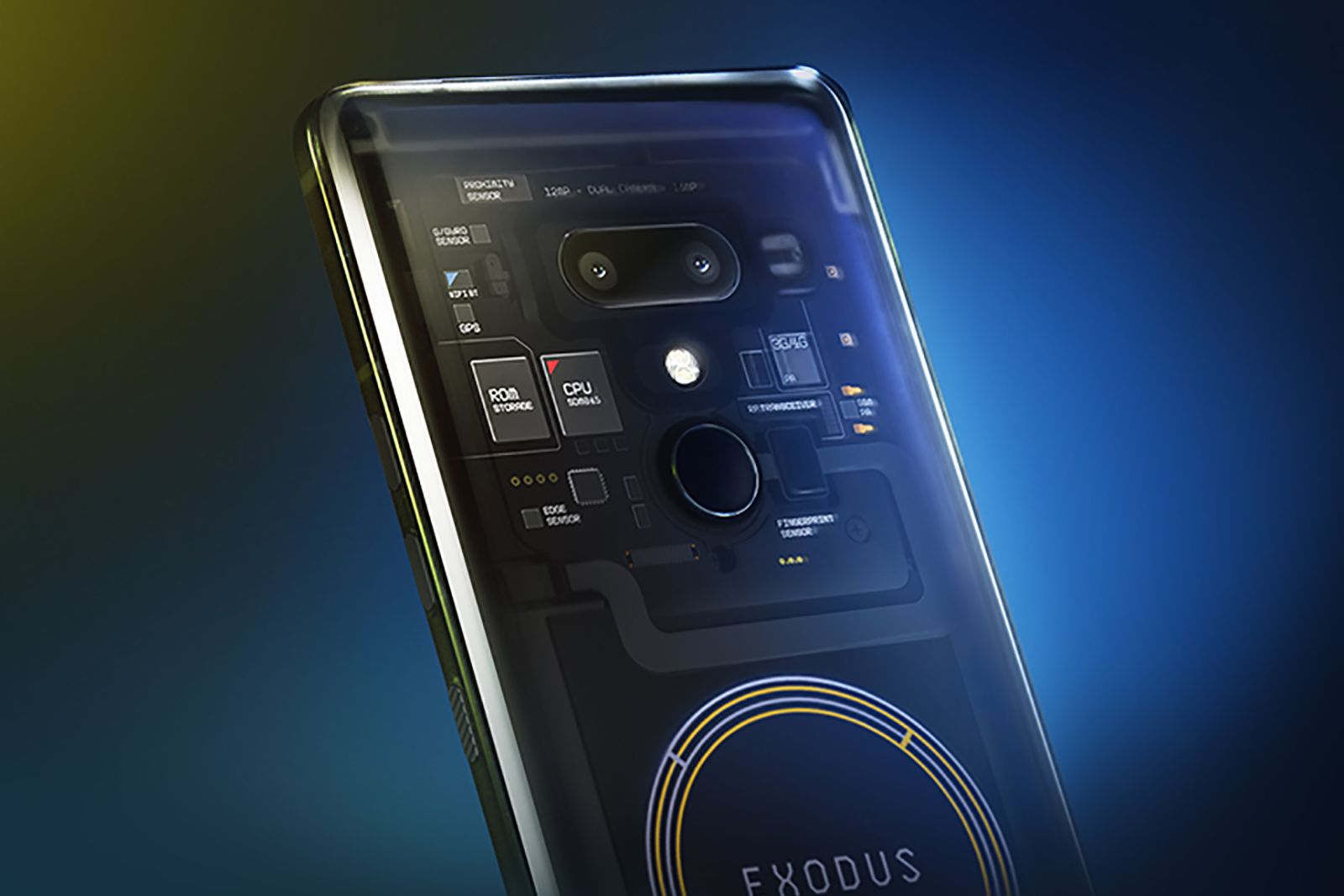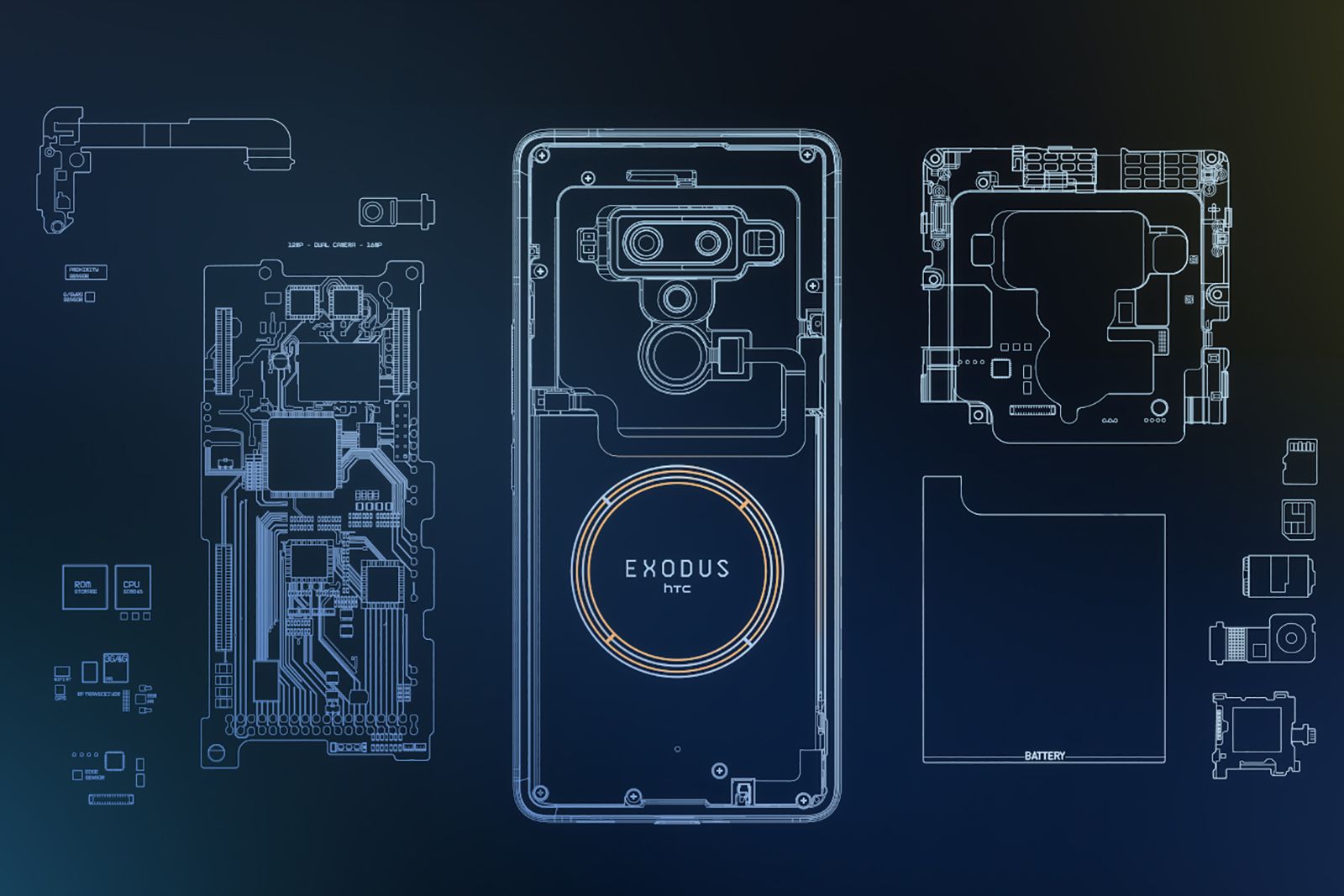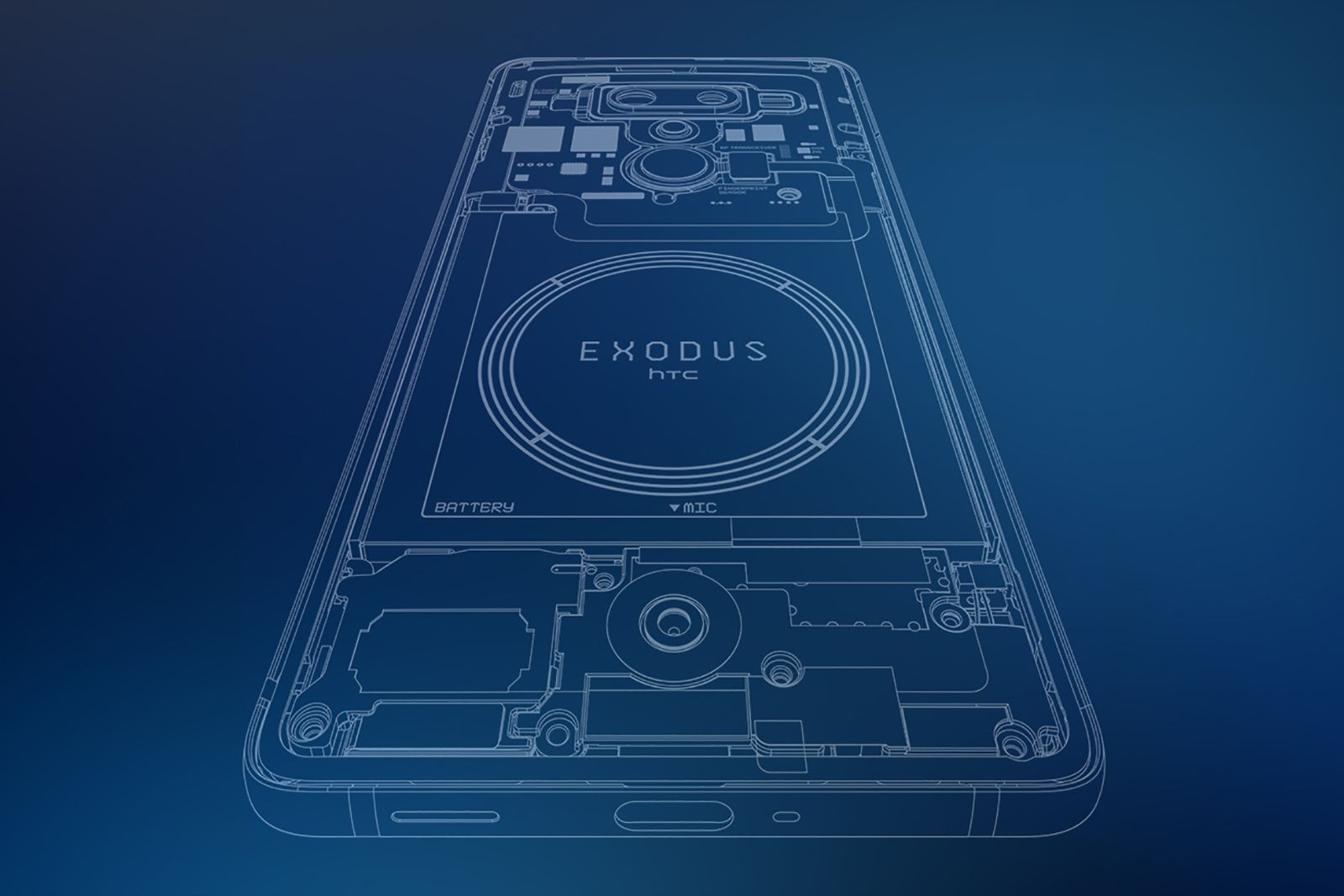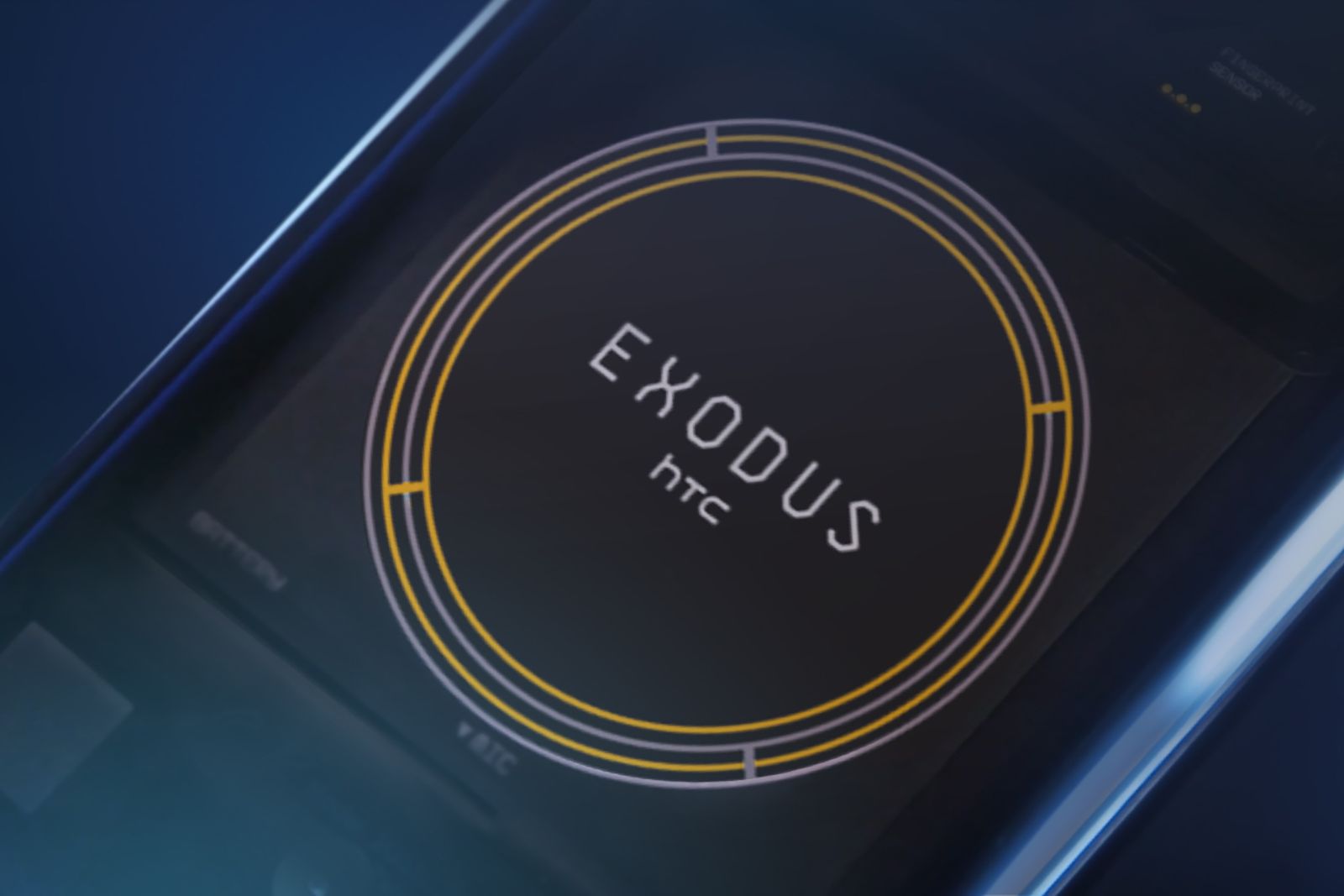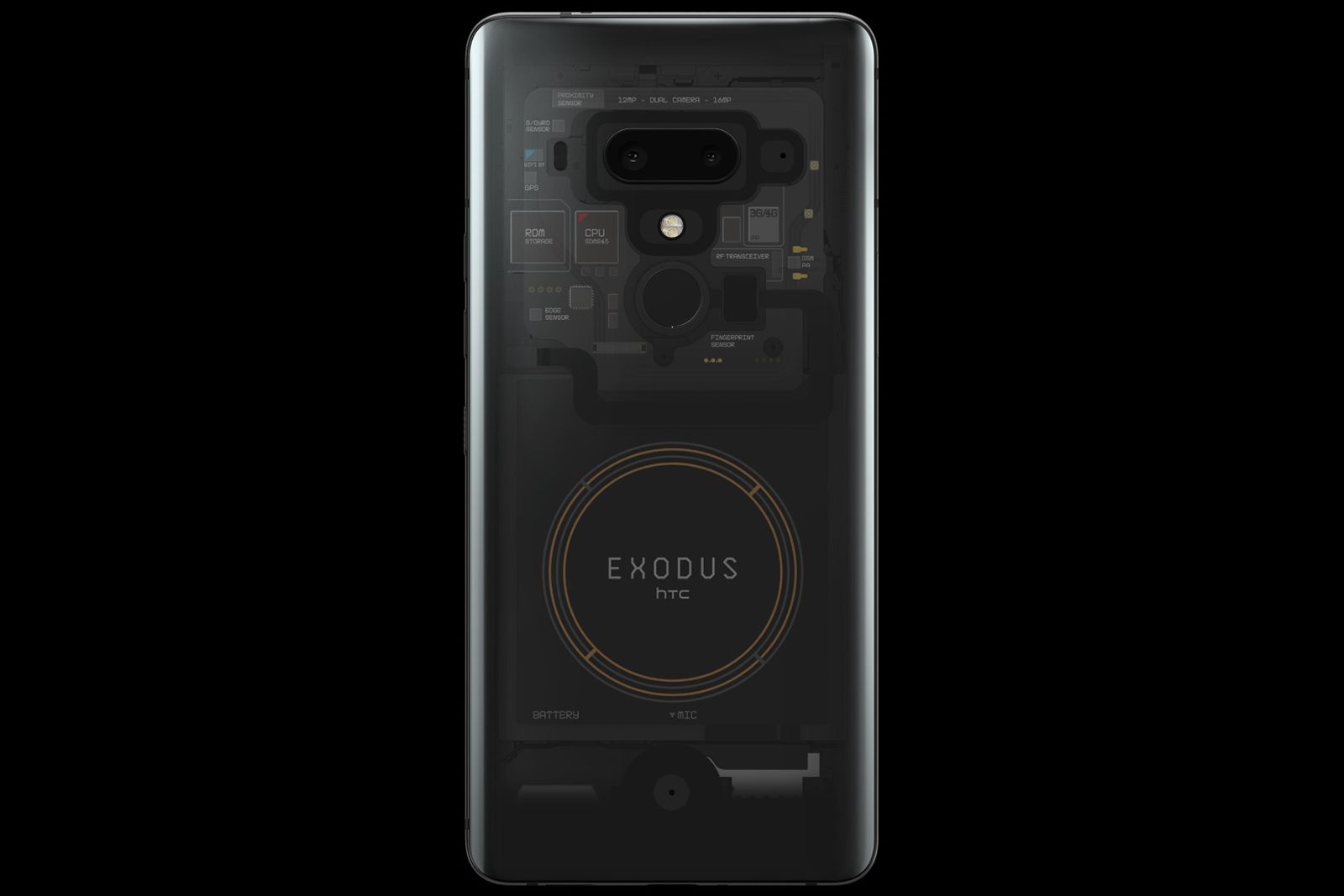After months of hype and mystery, HTC is finally letting people pre-order its first blockchain phone.
The concept of this phone is complicated. Blockchain and cryptocurrencies are still niche technologies, so the average consumer might not know what they are, let alone what a blockchain phone is or how they can use it. In an attempt to help you better understand, we've assembled this guide. In it, you'll learn the basics of blockchain and the HTC Exodus 1 and whether it's something you should get.
What is a blockchain phone?
Most blockchain phones have yet to launch, and because there is no set standard for them, it's hard to provide an exact definition. However, we've surmised that a blockchain phone is focused on decentralised apps, stronger security, and facilitating the use of cryptocurrency. There have only been a couple blockchain phones announced so far, and HTC is the first to market with its HTC Exodus 1.
What is the HTC Exodus 1?
Exodus 1 is a blockchain phone from HTC. It's billed as device that combines "the blockchain technology and software necessary to create a smartphone experience fit for a modern user and the new internet age". This blockchain phone effort at HTC is being spearheaded by Phil Chen, the man behind the HTC Vive, and before that, the Facebook phone and the Barnes and Noble Nook.
Exodus 1 will support multiple protocols, serve as a node, provide access to a universal wallet and decentralised apps store, and store your data on a secure enclave. We will delve into these features and what you can do with them in a bit. But first, we need to dissect the blockchain and cryptocurrencies. You see, these are not easy to understand, and HTC is trying to challenge that notion.
It's aiming to introduce a phone with a system and interface designed to make it easier for you to not only understand and leverage the blockchain, but also use cryptocurrencies and decentralised apps and securely store your data.
What is the blockchain?
Imagine a spreadsheet (or "ledger") duplicated thousands of times across a network of computers (or "nodes"). It's accessible to anyone on the internet, it isn’t stored in any single location, and it isn't controlled by any one entity.
While new information can be added onto this ledger at any time, the previous information cannot be edited, adjusted, or changed. The purpose of this is for transparency. You see, the information in the ledger is stored in blocks, and cryptography essentially links all new blocks of information to older blocks. So, if any changes were to happen to a block, it would invalidate the whole chain.
The beauty of this is that it allows transactions to be accurately recorded, publicly accessed, and verified. Also, the ledger of transactions is managed by a network, rather than one central authority. It is therefore considered to be secure - not because it is encrypted, but because there is no single "master" copy that a hacker or overreaching authority can alter.
This is why blockchain is the ideal way to keep records for financial transactions, or cryptocurrency.
What are cryptocurrencies?
Cryptocurrencies are blockchain-based digital assets that use cryptography to secure financial transactions. No matter which you use, keep in mind their price can unpredictably increase or decrease over a short period of time due to their young economy and sometimes illiquid markets. Cryptocurrency is as a high risk asset, and you should never store money that you cannot afford to lose.
BTC and ETH
Bitcoin (BTC) is one of the world's first cryptocurrencies. Free Bitcoin wallets are available for all major operating systems and devices. For instance, you can install an app on your phone, or you can have a wallet only for payments on your Mac.
- What is Bitcoin? Everything you need to know
- Are cryptocurrencies safe?
- 8 best Bitcoin and Cryptocurrency exchanges 2018
Wallets are essentially software programs that facilitate sending and receiving of the cryptocurrency and provide a balance to the user. They come in many forms, with desktop, mobile, web, and hardware as the four main types. Picking and setting up a wallet can be done in minutes. Examples for Bitcoin include Bitcoin Nots and Electrum. Once you pick a wallet, you can start using cryptocurrency.
You can accept it as a payment for goods and services. You can also buy it. And, of course, you can spend it. There are a growing number of merchants accepting cryptocurrency. There are also numerous different cryptocurrencies available. Another popular example is Ethereum's Ether (ETH).
What can you do with the blockchain phone?
HTC has announced little about its phone, despite allowing people to pre-order it. It's mentioned things like decentralised apps and secure on-device storage for your personal information instead of using the cloud. There's also been talk of a universal wallet that supports a range of cryptocurrencies, and each phone will serve as a node. Here are the main things you'll be able to do with the phone:
Use a variety of cryptocurrencies
Exodus 1 will support multiple protocols and have a universal wallet for cryptocurrencies. The plan is for it to support "underlying protocols such as Bitcoin, Lightning Networks, Ethereum, Dfinity, and more". Normally, you'd have to use separate wallets and apps and even devices to try all these. HTC is claiming to be "Switzerland" here and wants to make it easier for you to access and use them with a single device and wallet.
What's interesting is that the Exodus 1 will also serve as nodes for these cryptocurrencies. So, not only will you be able to use them, but your phone will also be part of the network supporting their existence. HTC wants to "double and triple the number of nodes of Ethereum and Bitcoin".
Securely store your data
Like the Phone, which uses a separate processor called the Secure Enclave to handle your biometric information (Touch ID and Face ID data), the HTC Exodus 1 contains a secure enclave. If it's like Apple's version, it'll boot separately from the rest of your device and run its own microkernel that is not directly accessible by the operating system or any programs running on your device.
It'll also have storage for storing private keys. These keys are unique to your device, and are never synced to the cloud or directly seen by your device’s primary operating system. HTC described its secure enclave as a locked area on the device that is protected from the Android O operating system and hold the keys to your crypto, whether that is currencies, non-fungible tokens (NFTs), or digital data.
The point of this is that your identity and data will be store locally on the phone, rather in the cloud, making it harder for a hacker to access.
When we asked HTC for more details about its Secure Enclave, it told us:
"We are using the secure enclave to store our private keys to Zion Wallet and any other partners that use our Zion SDK. Also, our Trusted UI brings protections to users when signing transactions.You can think of our Secure Enclave running a trusted micro OS in parallel with Android, so the user will get access to the Play Store and for a small number of transactions now utilize our Secure Enclave."
Recover your lost keys
HTC has developed what it calls a "unique Social Key Recovery mechanism" in case your phone is lost or stolen, or if you've forgotten your cryptographic keys, which serve as your secure digital identity reference on the Exodus 1. This feature is marketed as an easy and secure way to recover lost keys. It essentially allows you to pick a few trustworthy contacts.
Those contacts must download a key management app and will receive the necessary information for you to regain access to your data or funds.
Try decentralised apps
Exodus 1 will provide access to decentralised mobile apps, or open-source apps that leverage blockchain technology. These are called Dapps. Bitcoin and Ethereum are loosely defined as Dapps. However, Ethereum has a platform that enables developers to create other Dapps, such as Golem, Augur, and Melonport, which have real-life use cases, like asset management to resource planning.
We asked HTC if it plans to offer its own Dapps store, sort of like a Google Play Store or Apple App Store, with the goal of making it easier for you to find and try decentralised apps. It told us, "We are initially focusing on providing a secure environment for our users and also extending that support to our partners using our Zion API and SDK. Our goal is to rebuild a foundation of trust and security."
Note: HTC also told Pocket-lint it plans to release a Zion key management API and wallet SDK soon, and it will allow third-party developers to use the EXODUS 1 hardware to protect keys and sign transactions.
Get the Android O experience
Lastly, Exodus 1 will run Android O (with some HTC customizations, of course), which means it should still be relatively familiar to use.
HTC Exodus 1 specifications
Here's a look at the key technical specs:
- 6-inch Quad HD+ display with 18:9 aspect ratio
- Nearly bezel-less display, with no notch
- 16-megapixel and 12-megapixel dual main camera
- 8-megapixel dual front camera
- Support for full 4K video at 60fps and "natural bokeh" selfies
- 6GB of RAM
- 128GB of storage
- Qualcomm Snapdragon 845 processor
- 3500mAh battery
- Dust resistant and waterproof to a rating of IP68
- No audio jack, but it supports USB-C headsets
When will it be available?
Exodus 1 is now available for pre-order from htcexodus (during an "early access period") in 34 countries, including the US and UK.
HTC expects to start shipping the phone to buyers in December 2018.
How much does the HTC Exodus 1 cost?
You can only purchase Exodus 1 from htcexodus.com using Bitcoin (BTC) or Ether (ETH) cryptocurrencies. It costs 0.15BTC or 4.78ETH.

